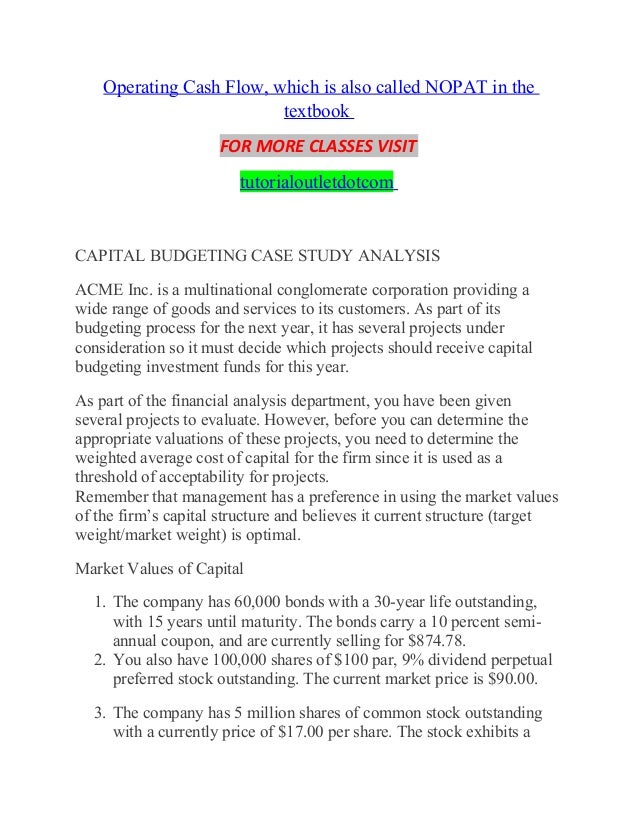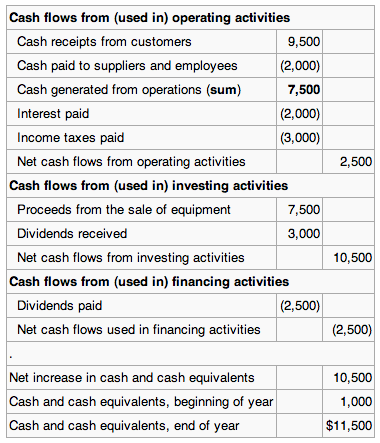Net operating income is a measure of profitability in real estate—the amount of cash flow a property generates after expenses. Operating Cash Flow (OCF) is a measure of the amount of cash generated by a company’s normal business operations.
What Changes In Working Capital Impact Cash Flow?
Cash flow from operations forces an analyst to consider different treatments of capital and depreciation costs, which have real implications for https://simple-accounting.org/ future earnings. In other words, EBITDA cannot recognize changes in working capital and the liquidity required to run day-to-day operations.
How To Evaluate A Company’s Balance Sheet
What is negative cashflow?
Cash flow is the net amount of cash and cash-equivalents being transferred into and out of a business. At the most fundamental level, a company’s ability to create value for shareholders is determined by its ability to generate positive cash flows, or more specifically, maximize long-term free cash flow (FCF).

Capital expenditures, such as costs for a new air-conditioning system for the entire building, are not included in the calculation. Because it’s easier to do, most businesses build their statements of cash flow via the indirect method, so let’s turn our attention there first. This section of the cash flow statement includes information about taking out loans to buy property Operating Cash Flow or equipment; issuing stock to employees, the public, or other stakeholders; paying out dividends, and so on. Your organization’s operating activities include everything that relates to how you generate revenue. If you’re putting together a business plan for a loan or investment, your cash flow statement is one of three must-have statements that your plan needs.
What’s The Net Depreciation Effect On Cash Flow?
We cover a broad range of areas, including the definition of depreciation and depreciation’s effect on cash flow. Patriot’s online accounting software for small business uses a simple system for managing books, so you can do your accounting in a few clicks. Audit your current operating expenses to see if any can be reduced or eliminated. Make sure you’re not paying too much for the products and services you need to run your business.

What Is Depreciation?
It displays all items as percentages of a common base figure rather than as absolute numerical figures. For example, if a customer buys a $500 widget on credit, the sale has been Operating Cash Flow made but the cash has not yet been received. The revenue is still recognized by the company in the month of the sale, and it shows up in net income on its income statement.
- What Is Earnings Before Interest, Depreciation and Amortization ( EBIDA)?
- Operating cash flow, also referred to as cash flow from operating activities, is the first section presented on the cash flow statement.
- It typically includesnet incomefrom the income statement and adjustments to modify net income from an accrual accounting basis to a cash accounting basis.
- Operating cash flow represents the cash impact of a company’s net income (NI) from its primary business activities.
Financing Activities
Default risk is the event in which companies or individuals will be unable to make the required payments on their debt obligations. However, when it comes to analyzing the performance of a company on its own merits, many analysts see free cash flow as the better measure. This is because it http://murwillumbahpoolshop.com/units-of-production-depreciation-calculator provides a better idea of the level of earnings that is really available to a firm after it meets its interest, tax, and other commitments. Net operating income is a valuation method used by real estate professionals to determine the precise value of their income-producing properties.
Free Cash Flow Vs. Operating Cash Flow: What’s The Difference?
Growing businesses often face tighter margins and increased expenses—and it’s not a good idea to try to “out earn” cash problems. You may be great at selling, but it’s time to get great at forecasting and budgeting as well. Learn how profit differs from cash flow, and how the differences impact your business. Net Income is the result of revenues minus the expenses, taxes, and costs of goods sold (COGS). To create a strategy that avoids declines in cash from operations, businesses should focus on maximizing net income and optimizing efficiency ratios.
To weed out the impact of capital equipment and long-term assets more effectively, financial analysts use EBITDA. Excluding depreciation and amortization serves to isolate structurally neutral profitability. The point of emphasizing earnings before any interest payments or tax obligations is that it allows companies with different capital structures or tax rates to be compared. In addition to rental income, a property might also generate revenue from amenities such as parking structures, vending machines, and laundry facilities. Operating expenses include the costs of running and maintaining the building, including insurance premiums, legal fees, utilities, property taxes, repair costs, and janitorial fees.
I see a lot of clients get frustrated with setting up a personal cash flow management system. I always tell my clients that it takes time to figure out a system that works best for them. Once you do, it will be the financial foundation from which all things flow, and flow easily. If it’s the last one, we may need to devote a future post to corralling a credit card problem. But in the meantime, having your expenses paid out of one source helps simplify your life.
are important, but in the short-term, cash flow is probably the number one concern. Now assume that a different company had a profit of $60,000 in its first year, but paid out $65,000 near the end of the year to acquire equipment that will be put into service on the first day of its second year. During its first year the company had $65,000 of profit, but may end the year with $0 cash.
Enterprise value (EV) is a measure of a company’s total value, often used as a comprehensive alternative to equity market capitalization. EV includes in its calculation the market capitalization of a company but also short-term and long-term debt as well as any cash on the company’s balance sheet.
Determine whether you have a loss from your operations, or if your income and expenses do not match up. Sometimes, negative cash Operating Cash Flow flow means that your business is losing money. Other times, negative cash flow reflects poor timing of income and expenses.

However, it does have an indirect effect on cash flow because it changes the company’s tax liabilities, which reduces cash outflows from income taxes. For example, your bills might Operating Cash Flow be due before a customer pays an invoice. Meanwhile, the netprofit marginindicates how well the company converts sales into profits after all expenses are subtracted out.

